The not-so-sweet heat could be from a medical condition, menopause or even spicy foods
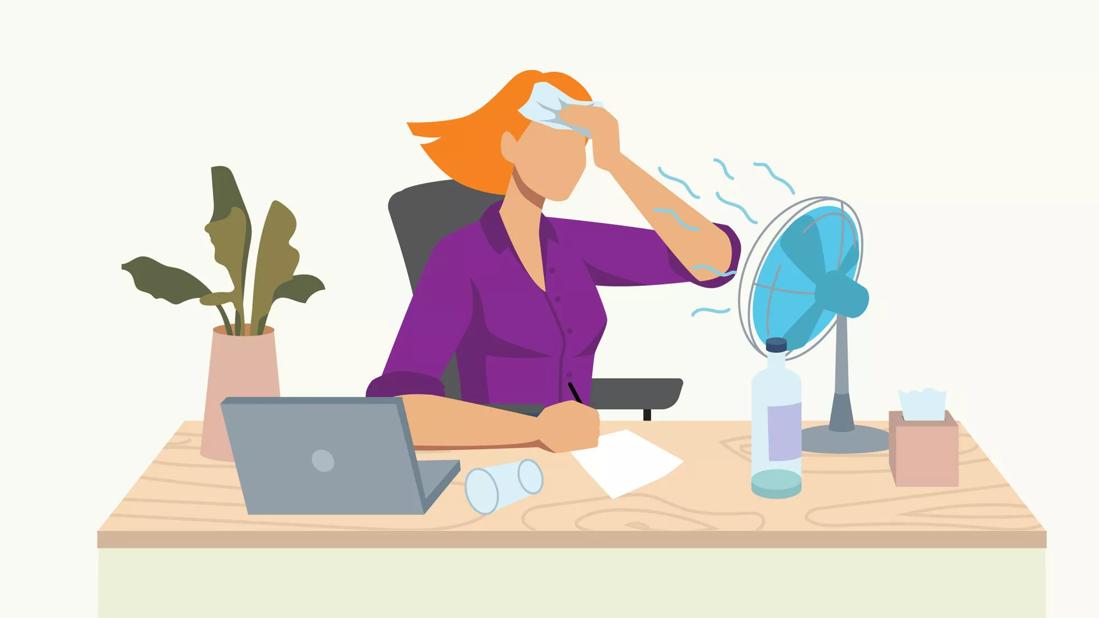
When you feel a burning desire or a warm glow of satisfaction or hear “You’re on fire!” — it’s great, right?
Advertisement
Cleveland Clinic is a non-profit academic medical center. Advertising on our site helps support our mission. We do not endorse non-Cleveland Clinic products or services. Policy
But when your body feels like it’s actually on fire — well, that’s less great.
Feeling hot can be a natural symptom of menopause or a reaction to something you ate or drank. It can also be due to an underlying health condition, such as an issue with your thyroid gland. (Hyperthyroidism, when you have too much thyroid hormone, speeds up your body’s processes. It can make you feel thirsty, hungry — and hot.)
“How you experience this sense of heat can vary widely,” says family medicine provider, Amy Bernstein, DO. “Some people have hot flashes or night sweats. Others feel hot during certain activities or even all the time.”
Feeling hot or overheated is related to how your body regulates temperature. A small area in your brain called the hypothalamus acts as your thermostat, maintaining a core body temperature of 98.6 degrees Fahrenheit (or 37 degrees Celsius).
When your body is too warm, your hypothalamus triggers sweating and opens blood vessels near your skin’s surface to cool you down. When your body is too cold, your hypothalamus directs blood to your core, which stimulates shivering.
If you’re feeling unusually hot, there may be a problem with your temperature regulation system, says Dr. Bernstein. An imbalance in these carefully regulated processes can cause:
Advertisement
Feeling hot can be a natural occurrence or a symptom of a more serious condition. Whether it’s a concern depends on the cause.
Some reasons you may feel hot and sweaty include:
What you eat or drink can affect your body in different ways. As your body tries to regulate what you’re putting in it, you may feel warm and sweaty, says Dr. Bernstein. For example:
Feeling hot and sweaty is a side effect of some medications, such as:
“If you’re starting a new medication, you may temporarily feel hot as your body adjusts,” explains Dr. Bernstein. “But if you’re still having symptoms after a month, let your provider know. They can review your concerns and adjust your medication or dosage if needed.”
Pregnancy can be a wonderful time, but it’s also a time when your body is going through some dramatic changes. Headaches, back pain and constipation are just a few common symptoms associated with pregnancy.
“It’s normal to feel hot when you’re pregnant,” notes Dr. Bernstein. “This reaction is due to elevated hormones and the higher volume of blood running through your body. Like most symptoms associated with pregnancy, that hot feeling will go away after you give birth.”
One of the most common causes of hot flashes and night sweats is menopause. Menopause is when your period stops because your ovaries stop making estrogen and progesterone.
Menopause usually begins between ages 45 and 55. But the symptoms, including hot flashes, can start up to a decade earlier. This time before menopause is called perimenopause.
“Many women experience menopause-related hot flashes,” says Dr. Bernstein. “Fortunately, we have many effective treatment options to relieve the severe discomfort some people feel. If you are having hot flashes, make an appointment to talk about this with your doctor.”
Advertisement
As you age, your body temperature changes. People over age 65 often have a harder time adjusting to the cold or heat.
“Older adults sweat less and have poorer circulation,” says Dr. Bernstein. “They may also have medical conditions or take medications that affect temperature regulation.”
When it’s hot outside, an older adult may feel the heat more intensely. They’re also at higher risk of heat-related illnesses such as heat exhaustion or heatstroke. That’s why it’s important to check on older relatives, friends and neighbors frequently when temperatures soar.
People who have overweight or obesity retain more body heat, which can make them feel warmer. If you’re interested in losing weight and keeping it off, ask your provider about safe and effective weight loss options.
Your thyroid is a butterfly-shaped gland located in front of your neck. As part of your endocrine system, your thyroid makes hormones that control many bodily functions.
If your thyroid is hyperactive, it produces too much thyroid hormone. This excess can cause irregular periods and heat intolerance.
If your thyroid is to blame, you’ll probably be experiencing other symptoms such as fatigue, thinning hair, unintentional weight loss and brain fog. Dr. Bernstein recommends talking to your primary care provider if you’re experiencing any of these symptoms.
Advertisement
Diabetes occurs when your body can’t regulate sugar. Insulin is the hormone that helps you control the amount of sugar in your bloodstream. Your pancreas releases insulin after a meal when your blood sugar rises.
There are two types of diabetes:
“A blood sugar level that’s too high or too low can make you feel hot and sweaty,” Dr. Bernstein explains. “This problem can occur if you have poorly managed diabetes. It can also be an early sign of the disease.”
If you suspect an issue with your blood sugar, be on the lookout for early signs of diabetes and speak with your healthcare provider. A healthy diet and regular exercise are important for managing your blood sugar.
During stressful or dangerous times, your nervous system triggers a fight-or-flight response. This response slows the less important body functions and heightens your senses, helping you stay alive.
If you have anxiety and depression, your brain may tell you that you’re in danger even when you’re not, says Dr. Bernstein. As your nervous system responds to stress, your heart and breathing rate increase, and you may feel warm and flushed.
Advertisement
Fibromyalgia is a chronic disease that causes heightened sensitivity to pain. Feeling hot and sweaty can be one symptom, along with sleep issues, brain fog, headaches and fatigue.
“While feeling hot and sweaty is associated with fibromyalgia, most people with this condition will also have other associated symptoms,” states Dr. Bernstein. “Through medications and other treatment strategies, we can help patients find relief.”
Several types of cancer can affect your hormone levels and make you feel hot. For example:
Neuroendocrine tumors and pheochromocytomas are rare cancers, says Dr. Bernstein. When it comes to why you may be feeling hot, they’re much less common than other potential causes.
Dr. Bernstein recommends keeping track of your symptoms, what they feel like and when they happen. Are you feeling hot all the time? Do you experience drenching hot flashes or night sweats?
“Feeling hot in relation to food, caffeine or alcohol is common and shouldn’t alarm you,” he says. “But if you feel like you can’t regulate your body temperature or if feeling hot is interfering with your life, it’s time to talk to your primary care provider.”
A healthcare provider will check your symptoms and help determine your next steps. They may recommend blood tests, additional monitoring or a referral to a specialist. Partnering with your provider can help you figure out what’s making you feel hot and find strategies to help you cool down.
Learn more about our editorial process.
Advertisement
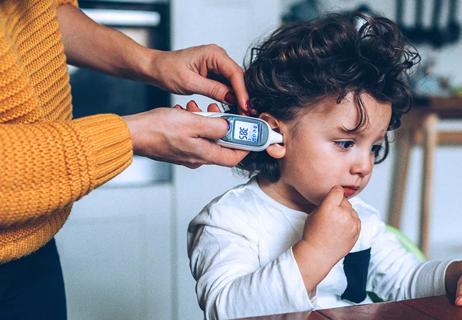
You can use a digital, tympanic or temporal artery thermometer
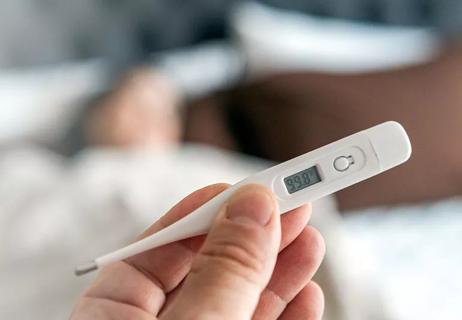
There’s no one answer, as your temperature fluctuates throughout the day and your life
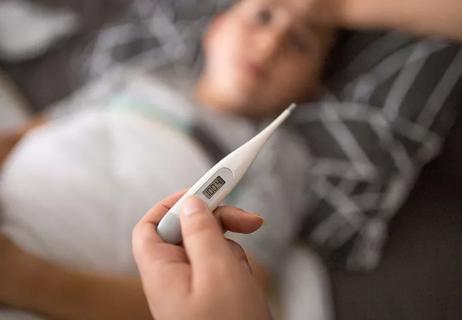
Use a digital oral, rectal, axillary, ear or forehead thermometer based on your child’s age

Know the risks, the signs and actions you should take
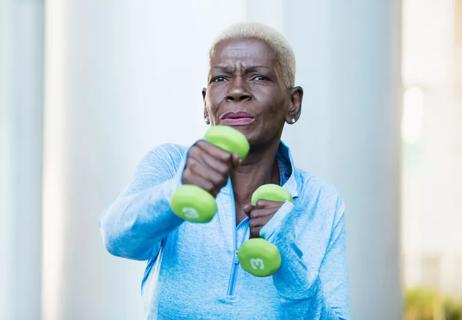
And 4 things you can do to combat heat and cold intolerances
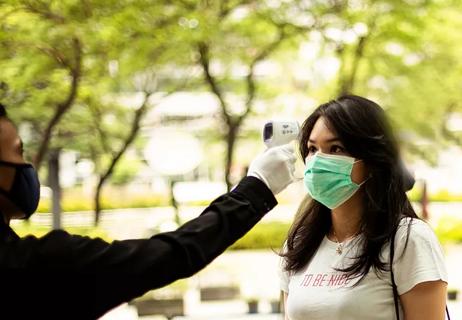
The short answer from a family medicine specialist

Estrogen loss contributes to bone loss, which significantly raises your risk of osteopenia and osteoporosis

Making certain changes to your diet, sleep habits and even your wardrobe may help lessen the impact of menopause symptoms

The tropical fruit is a good source of antioxidants and vitamin C

Most people fall asleep within 10 to 20 minutes, but if your experience is different, adjusting your sleep schedule may help

Exploring your hidden side can lead to better understanding of what makes you tick